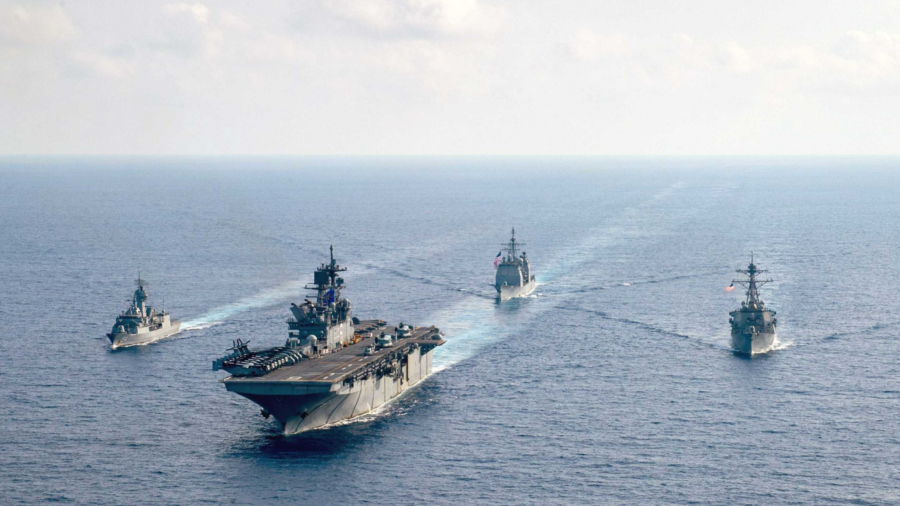Australia has formally declared that China’s major maritime claims in the South China Sea have “no legal basis” and are invalid.
The move comes after the United States formally rejected Beijing’s claims to the South China Sea earlier this month.
The Australian government said in a declaration filed at the United Nations in New York that it rejects any of the Chinese regime’s claims to key parts of the South China Sea that are inconsistent with the 1982 U.N. Convention on the Law of the Sea (UNCLOS) (pdf).
The Chinese Communist Party (CCP) has laid claim to most of the South China Sea, citing the so-called “nine dash line,” a vaguely-defined U-shaped delineation that carves out the regions where it claims “historic rights” to resources within the sea.
In its declaration (pdf) dated July 23, Australia’s mission to the U.N. said that it “rejects China’s claim to ‘historic rights’ or ‘maritime rights and interests’ as established in the ‘long course of historical practice’ in the South China Sea.”
Similar to the United States, Australia cited the 2016 ruling by an arbitration court in The Hague that found that the CCP’s claims of historic rights to resources in the South China Sea in waters also contested by the Philippines had “no legal basis.” At the time, the CCP’s Foreign Ministry did not acknowledge the tribunal’s decision, saying it was “null and void.”
Australia’s statement goes on to say, “There is no legal basis for China to draw straight baselines connecting the outermost points of maritime features or ‘island groups’ in the South China Sea, including around the ‘Four Sha’ or ‘continental’ or ‘outlying’ archipelagos.
“Australia rejects any claims to internal waters, territorial sea, exclusive economic zone, and continental shelf based on such straight baselines.”
Australia also rejected the CCP’s sovereignty claims to the Spratly Islands and the Paracel Islands as being “widely recognized by the international community,” by citing recent protests by Vietnam and the Philippines to the areas.
The CCP has in recent years constructed artificial islands equipped with naval and air bases in surrounding areas to the Spratly Islands and the Paracel Islands in an apparent bid to assert its claim over the regions, in addition to increasing its overall military presence in the South China Sea.

Other countries with territorial claims to the resource-rich South China Sea include the Philippines, Vietnam, Malaysia, Brunei, and Taiwan.
“The Australian government encourages all claimants in the South China Sea, including China, to clarify their maritime claims and resolve their differences peacefully, in accordance with international law, particularly UNCLOS,” Australia’s statement reads.
Australia’s declaration comes ahead of high-level “AUSMIN” talks between Australia and the United States in Washington on July 28, in which Australian Defense Minister Linda Reynolds and Foreign Minister Marise Payne will meet U.S. Secretary of State Mike Pompeo and Defense Secretary Mark Esper.
“Australia and the U.S. share a steadfast determination to keep the Indo-Pacific secure, open, prosperous, inclusive, and rules-based. … Never has it been more important that we, as allies, find every possible way to advance shared interests,” Payne and Reynolds wrote in a statement championing U.S.-Australia ties ahead of the talks.
The two leaders noted that there have been “coercive actions in the South China Sea,” which “continue to create tensions that destabilizes the region.”
Without explicitly singling out the Chinese regime, the two leaders also noted other key security issues in the Indo-Pacific region: the recent “national security” legislation imposed on Hong Kong, increasing cyber attacks, and “disinformation by malicious actors … who have taken advantage of the COVID-19 crisis to undermine democratic systems and inflame social polarization.”
Frank Fang contributed to this report.
From The Epoch Times

